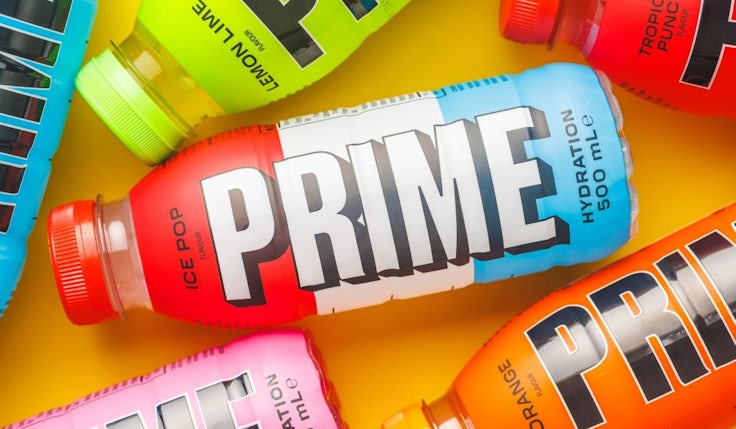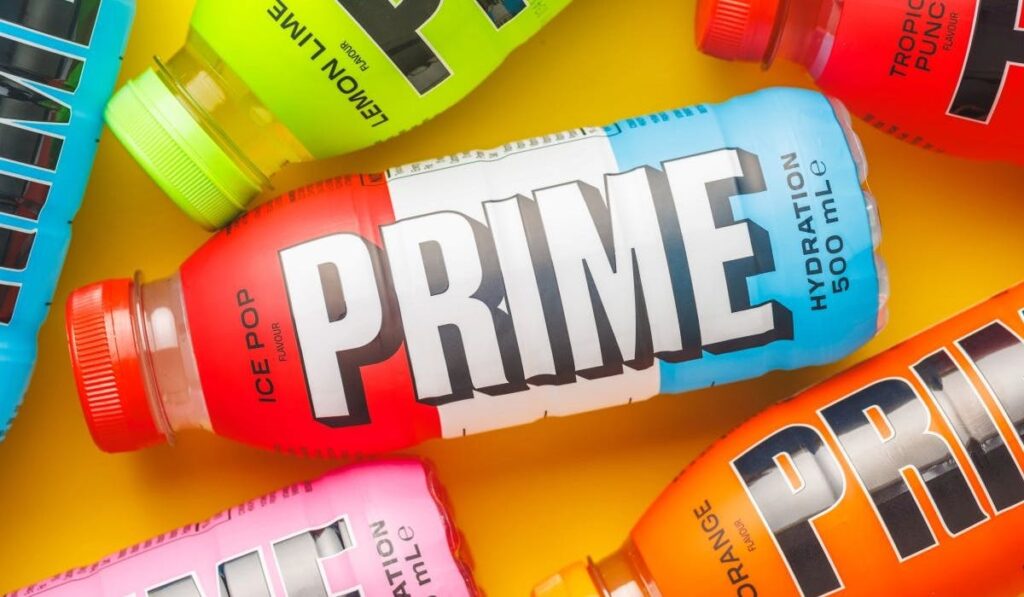The creator-fronted energy drink has seen sales collapse since its 2023 heyday as promotional activity bites.

Prime Hydration is planning a “strategic review” of its brand as sales of the energy drink continue to plummet.
Recently released account information to Companies House shows that Prime’s turnover dropped from £112.2m to £32.8m (down 70.7% year over year) while net profit sank from £3.72m to £312,393 (down 91.6%).
The alarming fall in profits has led the board to announce a strategic review to find a way to make the business a sustainable endeavour after its viral hype has started to fade.

Prime Hydration is planning a “strategic review” of its brand as sales of the energy drink continue to plummet.
Recently released account information to Companies House shows that Prime’s turnover dropped from £112.2m to £32.8m (down 70.7% year over year) while net profit sank from £3.72m to £312,393 (down 91.6%).
The alarming fall in profits has led the board to announce a strategic review to find a way to make the business a sustainable endeavour after its viral hype has started to fade.
“Sales have grown significantly since entering the market in 2023. In 2024 the consumer interest has moderated and revenues have decreased,” the business said in a statement alongside its results.
“The company is now entering a strategic review process to transition from an initial hyper-growth phase to a more sustainable, long-term presence in the market.”
That sustainable future seems to be betting on brand innovation to turn around the brand’s struggles. The company indicated that the launch of Prime Ice – an ice cream range based on its flavours – and further new product lines will regain the brand the notoriety it once had.
Prime sees sales fall by almost 50% in 2024Prime was launched in the UK in 2022 by content creators KSI and Logan Paul and was one of the leading examples of online influencers being able to take their personal brand and launch a retail product off the back of it.
And for a while the product demanded a fervour that most brands could only dream about: with queues around the street and stock tracking apps created to help eager fans get their hands on a bottle.
Cracks were starting to show, however, in April 2024 when the drink was regularly found in the bargain bin and heavy discounting was needed to shift excess product – with Jon Evans of System1 telling Marketing Week it was proof that you couldn’t “cheat the fundamentals” when it comes to brand building.
Evans, who has worked in the soft drinks category for Lucozade and Britvic, said that a second-year drop-off in sales for a drinks brand is not uncommon as customers move onto the next brand that has hype built around it. But rather than flood the market with more product, smarter brands, such as Red Bull, take their time and steadily grow their influence on the market through controlled marketing.
“What they did is they started in a small part of the market first, they proved the concept,” Evans said. “And then they expanded gradually over time into new channels and to a bigger audience. But they did it in a very controlled way, and they also committed to it over a long period of time. They didn’t just do a big launch and then move on to the next thing.”
Social first
The struggles of Prime to parlay its viral success into sustained growth will be more fuel to the fire for those who believe brands cannot be built successfully solely over digital channels and off the trust of an influencer alone.
Research from Whaler last week, though, shows that 62% of creator-led content drives both brand equity and short-term sales likelihood – more than double the Kantar benchmark of 27% for most other channels. Giving credence to increasing industry spend on influencer marketing.
Marketing Week columnist Tom Roach has been making the case for digital brand building and wrote about the success of Prime at the peak of its viral success.
“Is Prime being built solely in social? No, it’s built, like all brands, with an array of different tools and tactics across all of marketing’s Ps, but it’s certainly ‘social-first’,” he wrote.
And while Prime has since lost the balance that made its early success so strong, if it embraces a more rounded approach to digital brand building, it could find success again.


